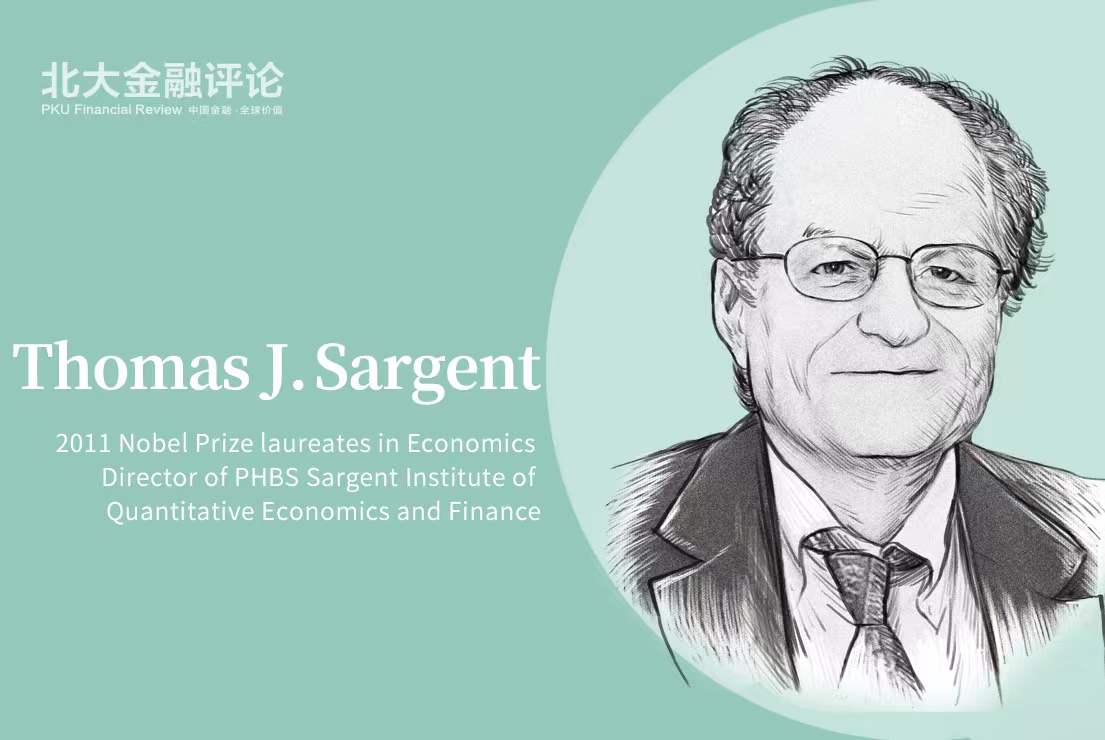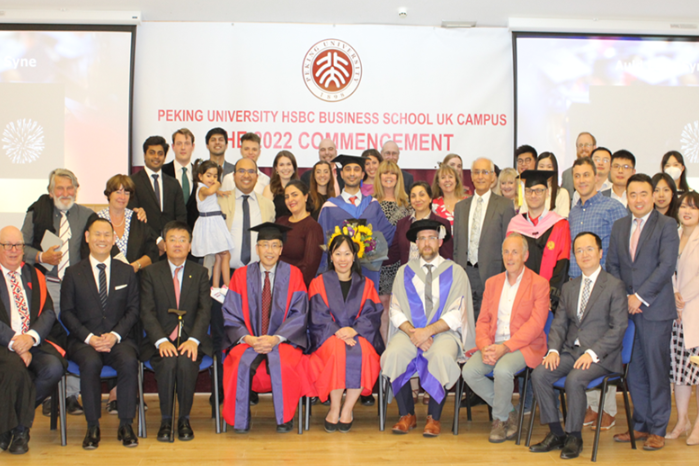As one of the leaders of the "rational expectations revolution”, Thomas J. Sargent devotes himself into the establishment and development of New Classical Macroeconomics. In 1970s, Thomas J. Sargent, Robert Lucas, Robert Barro and Neil Wallace pioneered the rational expectations school, which uses econometric models to analyze the lasting effects of economic policies. Today, this theory is mainstream thinking in economics, he also ranks among the most cited economists in the world.
In the interview with PKU Financial Review, Thomas J. Sargent, the 2011 Nobel laureate in economics, Director of the Sargent Institute of Quantitative Economics and Finance, states that, China’s experimenting with a digital RMB is a fascinating and progressive thing. It seems to be very “democratic” and “egalitarian” in the sense that it gives common people access to the sophisticated “ledger-based” banking arrangements that until now only wealthy people and institutions have had access to.
PKU Financial Review: At a forum event, you pointed out that China could become the largest economy. However, the status of the RMB is seriously mismatched with China's economic strength. How do you see the future development and global status of RMB?
Thomas J. Sargent: This is a great question. There have been long periods of time during which the largest or strongest national economy was not also the economy whose currency was widest used internationally. For example, the British pound continued to be the leading international currency even after the US had surpassed the UK in GDP. There are many more examples. The currency of Amsterdam became a leading international currency in the early 1700s when Amsterdam was still small relative to its neighboring economies. Which currency becomes dominant for international transactions is only partly influenced by decisions of governments. Much depends on what lawyers and bankers and private businesses decide and how they choose to write contracts and in which jurisdictions they choose to enforce them.
PKU Financial Review: You have pointed out that in 100 years there may be another world currency. We are curious that will US dollar suffer the same fate as pound sterling? During the 1930s, although Britain's economy was no longer the strongest, pound sterling remained to be the world's currency, and it was eventually replaced by US dollar. In your opinion, will any currency have the possibility to replace US dollar in the future? Or will there be new weighted currencies, such as gold + SDRS?
Thomas J. Sargent: Another really interesting question. I don’t know – it will be a surprise perhaps, and surprises are difficult or impossible to predict. Might it be some sort of digital currency – not actually paper at all but a sophisticated electronic ledger to which all citizens have access? It will depend partly on technologies – not only electronic but “economic theoretic” and “legal theoretic” in terms of setting up sustainable regulations that can keep transactions secure and risk-free.
PKU Financial Review: You once mentioned that blockchain will make central banks better managers. In this Winter Olympics, China is vigorously promoting digital RMB. What do you think of the fact that some central banks have entered the field of digital currency? Also, which do you think is the preferred attitude of central banks towards private crypto currencies? Should it be banned like China, or managed with a 30% transaction fee like India, or should it be strongly encouraged like Japan?
Thomas J. Sargent: Good questions again! China’s experimenting with a digital RMB is a fascinating and progressive thing. It seems to me to be very “democratic” and “egalitarian” in the sense that it gives common people access to the sophisticated “ledger-based” banking arrangements that until now only wealthy people and institutions have had access to.
PKU Financial Review: What do you think is the biggest change that the COVID-19 epidemic has brought to the world? Is it a change in the functioning of government, a change in society (such as inequality), or a change in global collaboration?
Thomas J. Sargent: All of the above and more, including a huge impulse to research in biology, medicine, and public health arrangements. Huge changes in the way we work – e.g., various ways of having meetings electronically facilitated by high tech companies. In some ways, strangely, this has helped foster “globalization” of scientific and academic work. I have attended a number of great online conferences in China and other places far from the US during the pandemic and these have opened my mind to new ideas.
PKU Financial Review: During the epidemic, many people are quarantined or blocked and unable to go to work. Should they receive short-term unemployment benefits? But does the implementation of these unemployment benefits fuel their incentive to work inactively, and they are happy to be locked down, thereby eroding economic incentives in the future?
Thomas J. Sargent: A great question that focuses on the tension between compassionate provision of social insurance, on the one hand, and adverse incentives possibly provided by public benefits. Some fine economic theorists have been pioneering ways of balancing these contending forces, some of the best work having been done recently in China. It goes under the term “dynamic mechanism design”.
PKU Financial Review: You are one of the leaders of the "rational expectations revolution”. Do you think "rational expectations equilibrium" still applies in this high inflation era?
Thomas J. Sargent: Yes I do think it applies. It is the equilibrium concept used by excellent young researchers in China and Europe and the US who are trying to understand the surge in inflation that has occurred most in Europe and the US after the pandemic.
* This article has been initially published in PKU Financial Review.















